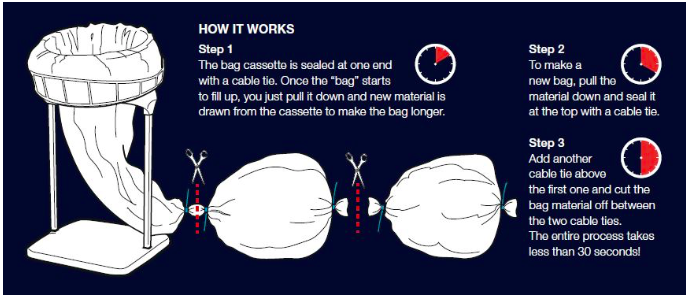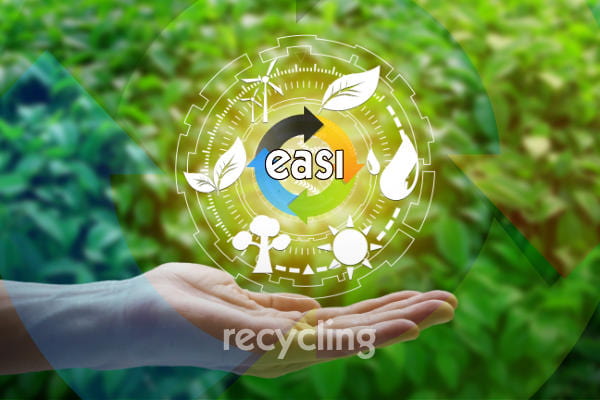Compostable and Biodegradable
Compostable and biodegradable can be two confusing terms that often come up in the world of recycling. Technically speaking, they both describe biological processes so the question is, what exactly is the difference between these terms? And why is knowing the difference so important? To get a better understanding, let’s first take a close look at the meaning of both words.Biodegradable
To put it simply, according to American Society for Testing and Materials (ASTM) a product is only ‘biodegradable’ if it will break down safely and quickly by naturally occurring microorganisms such as fungi, bacteria, algae or some other biological process. In fact, the meaning is right there in the word itself. ‘Bio’ means life, ‘degrade’ means to break down and ‘able’ means that it can happen. Really then, biodegradation is just nature’s way of breaking down materials. However, certain materials break down at different rates depending on what they’re made from. The truth is that many items are biodegradable, if enough time is given. Materials such as plastic are known to take years, even centuries to break down naturally – but they will eventually do so. That means, technically speaking, that they are biodegradable… So when a company labels their packaging as ‘biodegradable’ all it really means is that it will eventually break down in a land fill. While that’s great news, the real question is, how long does a product take to biodegrade? The less time this natural process takes, the better it is for our planet.
Compostable
Composting is the recycling process of organic waste so that it breaks down into its natural elements and can eventually be reused. However, in the packaging world, this term means something a little different. Generally, when a packaging company labels their product ‘compostable,’ what they really mean is that it can be turned into compost…but only when placed into an industrial composting facility. This means that compostable labelled products don’t always break down naturally in a landfill and in order to do so, they will most likely need the right kind of conditions - those that are only found in an industrial facility. In fact, compostable products can take a long time to break down naturally, especially if they’re placed in an ‘air locked’ landfill where no oxygen is present. So, while compostable products are certainly better for the environment, it’s vital that your business disposes of items properly, always ask your waste provider if they can dispose of compostable material correctly.
So what’s the difference?
Looking at the definition of both terms, it’s clear to see why it may be confusing but there is a vital difference. While composting may be a faster process, compostable materials need the correct environment in order to break down fully, whereas a biodegradable product will eventually break down naturally in the landfill. That being said, both these products are better for the planet than items made purely from plastic – which can take centuries to disintegrate.
Do we have an alternative to plastic ?
A very topical subject is finding an alternative to plastic and reducing plastic waste. As we can see, simply saying "we are changing to Biodegradable or Compostable" may not achieve your environmental goals or functional requirements. For 50 years we have used plastic in a 'care free' manner. Many innovative products are now designed to not only minimise plastic waste but also can improve functionality.
For example the "Longopac Waste Bag" uses 70% less plastic than a standard bag, is half the thickness and three times the strength. Research also shows that recycling increases dramatically when using colour coded Longopac waste Bags.

Longopac are also available in compostable, If you’d like a helping hand with ideas on improving your waste managment, Easi Recycling can help. To learn more, give us a call today on 0800 342 3177 or click here.
Or contact us for a FREE TRIAL









